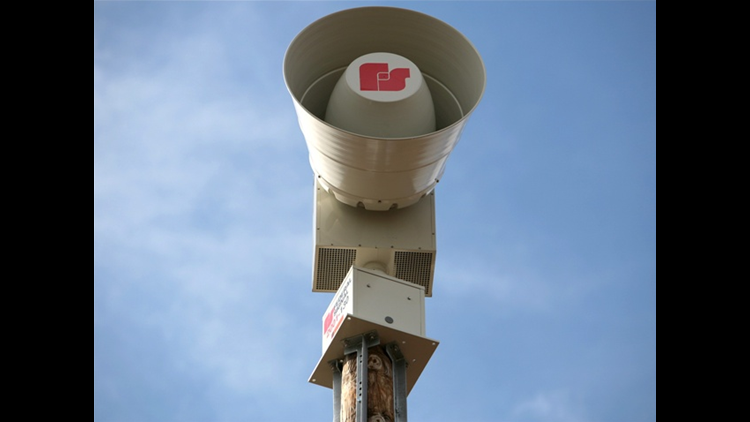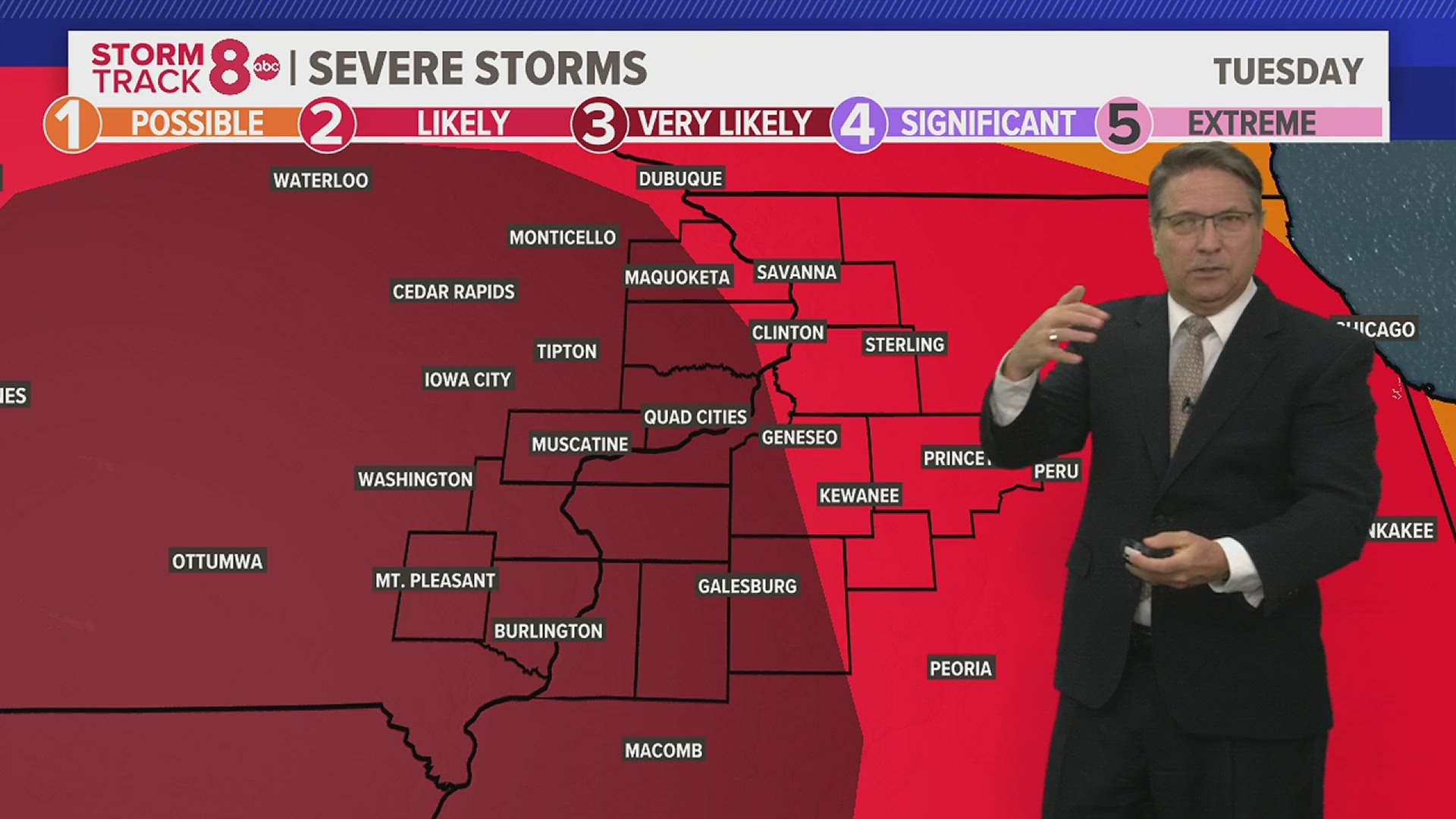We’re all used to hearing the roar of an outdoor warning siren during the spring and summer months, but do we fully understand the meaning behind the message it is trying to convey?
Tornado sirens have been a blessing in many small-town communities, especially those where cell phone reception is poor and the population is aging. The siren serves as the first line of defense, letting the population know something dangerous is imminent.
In the 1950s during the Cold War, the sirens served another purpose, warning of an impending bomb attack. While we don’t have that specific threat to our population today, often communities are raising their own tornado siren policies that differ from neighboring communities, causing confusion. Let’s examine the pros and cons of outdoor warning sirens.

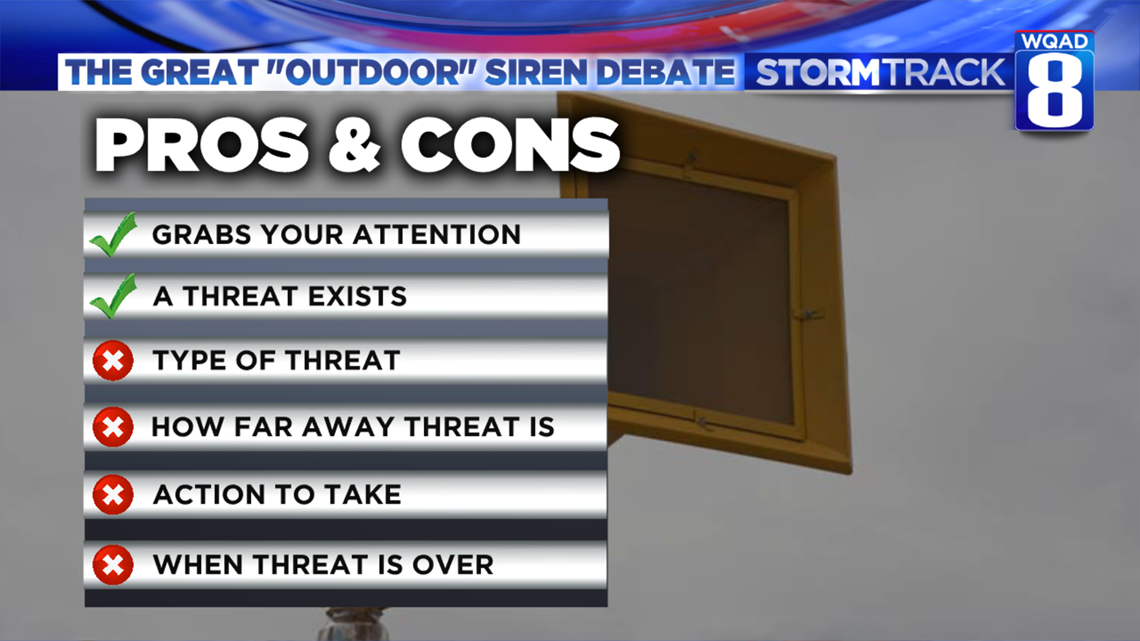
The sirens do a fantastic job of getting our attention with their loud, blaring noise, telling us a threat exists. What exactly is that threat though? If you were to survey the population, the majority of the answers to that question would point to an ongoing tornado that is ready to strike. Still, there remains a considerable number of questions, including the type of threat and when the situation is “all clear”.

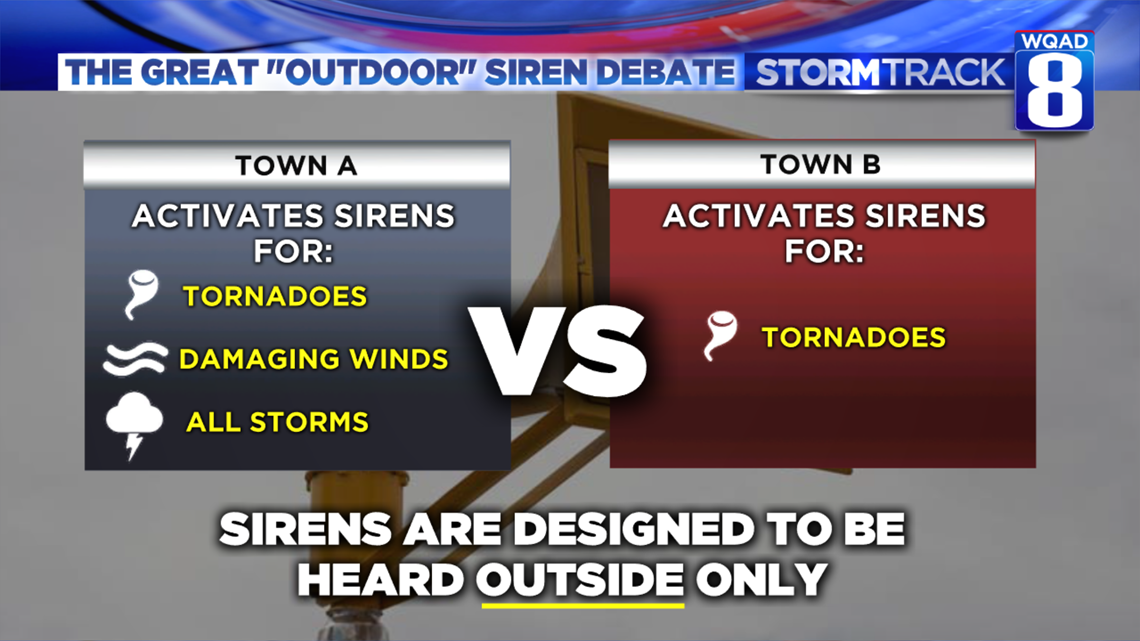
In the last several years, a trend has been changing the way these outdoor warning sirens have been used. Communities are now adding severe thunderstorm criteria as a valid reason for activating the community siren system. Many have established their own guidelines that can and do often times differ with neighboring communities.
Taking a look at the example above, Town A activates their sirens for tornadoes, damaging winds in excess of 70 MPH, and all storms in general. Meanwhile, Town B only activates its sirens for tornadoes. Why? The tornado and damaging wind part is self-explanatory, both of those elements are considered life-threatening, but all storms? Really? Yes! It’s all in the name “Outdoor Warning Siren“. Notice nothing is mentioned about them being used indoors? There’s a reason for that.

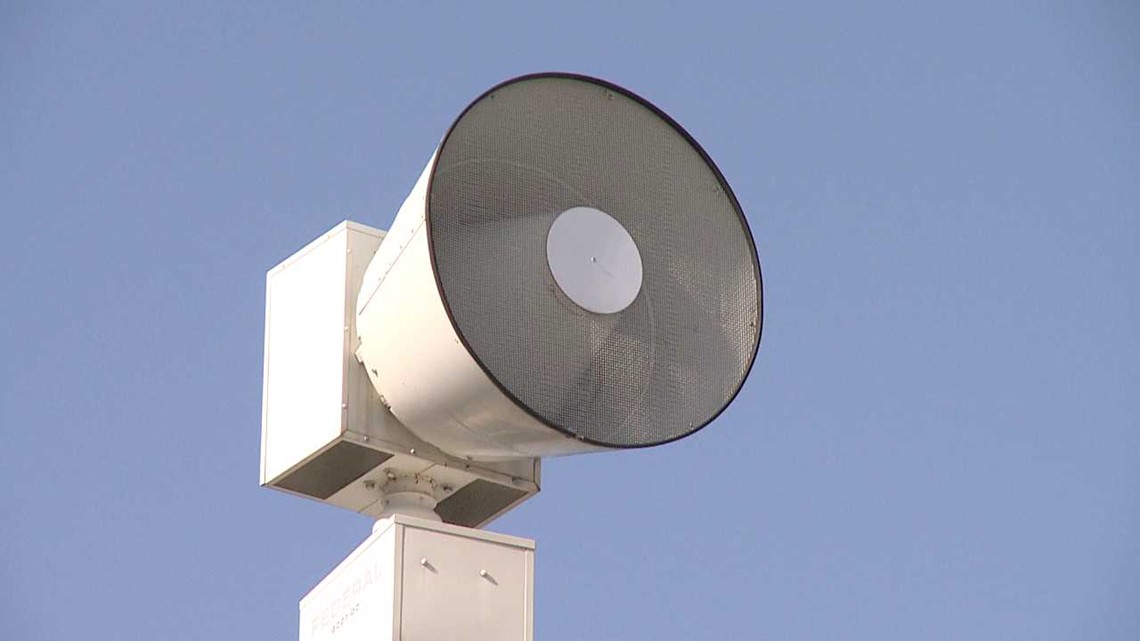
Manufacturers of outdoor sirens design them for one purpose, to be heard effectively outdoors in a number of different directions. They are meant to alert individuals who may be outside that threatening weather is approaching, directing them to move inside and seek shelter. They were never designed to be heard inside our homes. Those communities that have a policy of sounding their outdoor sirens for all storms have a valid reason to do so, as they are alerting individuals who are outdoors, perhaps attending a large event, that danger is imminent.

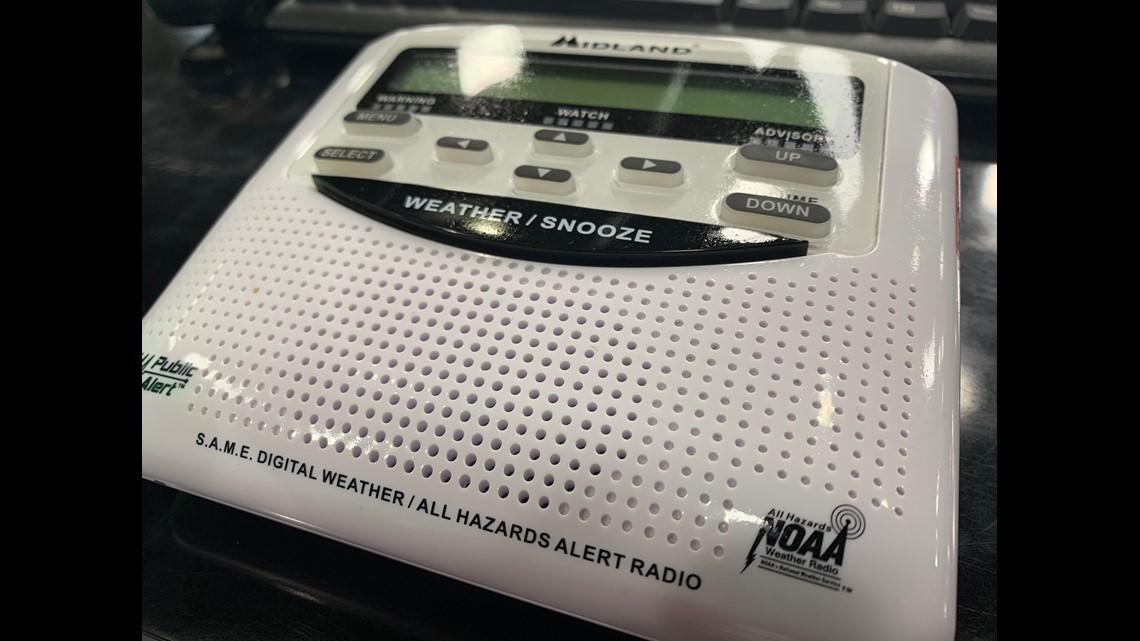
The best line of defense against severe weather is having one of these in your home. A NOAA weather radio will relay life-saving information as soon as the National Weather Service issues a warning for your specific area. They are easy to program, only alert your specific location, and are very inexpensive. You can even customize the alerts that you would like to receive.
Another good option is the StormTrack 8 Weather App for iOS, click here and for Android, click here. Perfect for when you are on the go. You’ll always know what type of weather is headed your way.
The National Weather Service in the Quad Cities has done a fantastic job of working together with local city leaders to make sure that the metro and surrounding communities are using a unified siren warning system. The complete action plan document can be viewed here.
For the Quad City Metro sirens are sounded for:
- Tornadoes
- Thunderstorms with winds of 70 MPH or greater
- Golf ball sized hail or larger
Do you know what the siren policy is in your community? Regardless, anytime you hear the outdoor warning sirens sound, that’s when its time to gather more information on the situation and assess whether or not you need to take action. Our policy remains the same here at WQAD News 8. When severe weather threatens the area, we’ll be on air with the information you need from the people you trust.
Meteorologist Andrew Stutzke
Download the News 8 Weather App — for iOS, click here and for Android, click here
Download the free News 8 App — for iOS, click here and for Android, click here


